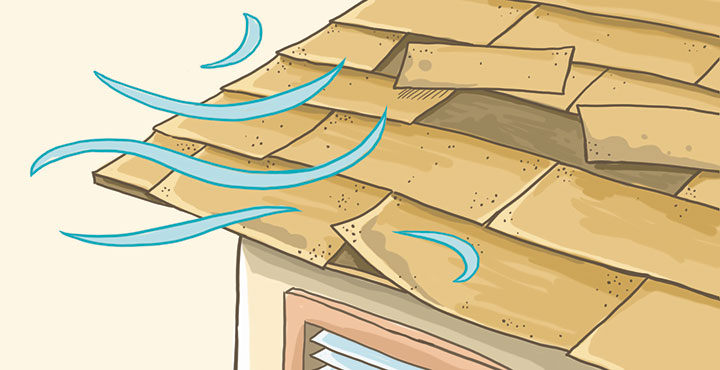Trust in your ability to cope with gusts
While driving home last weekend, grief struck upon seeing the uprooted, 100-year-old trees in Kapiolani Park. It continued as I drove through my neighborhood and saw my neighbor’s face — frustrated and a bit panic-stricken as he collected roof shingles that had blown off his garage and into the street.
Unfortunately, as windy weather comes and goes, sustained gale-force winds paired with strong gusts leave our roofs particularly vulnerable. If you find that your roof has come apart during a storm, consider some of these tips for what to do next.
Assess the damage
If it is safe, get up high and take a look. How many shingles have fallen off? If it is just a few, then you can probably get away with replacing just those shingles. If there are other damaged shingles that you see while you are up there, you will want to remove and replace those as well. Keep in mind that unless you have saved shingles from your last roof replacement, the new ones may not match exactly.
Weigh whether to repair or replace
If the damage is more extensive, you may want to have a professional come and help you repair or replace it. Large portions of the roof can be repaired without replacing the whole thing. However, much of the decision to repair or replace can also be determined by the age of the roof in the first place. Typically, we can expect shingle roofs to last about 30 years. If yours was nearing this age, you may want to replace it anyway. Think, too, about the roof warranty period. If yours is nearly up, this may be a good time to replace it entirely as well. Contact a roofing professional to determine whether you need to remove the existing roof before installing a new one.
Find the ‘sunny lining’
If you decide that replacing is the way to go, consider adding solar while you are at it. Solar panels typically last about 30 years. If your roof underneath needs to be repaired in the interim, you will need to remove the panels to access them. Installing both new at the same time may help you to minimize panel removal and re-installation later.
Contact your insurance agent
The good news is that most home insurance policies will provide coverage for roof damage due to wind. A deductible will usually apply, though, so the cost of this may affect whether you pursue reimbursement. Your insurance agent can help to guide you in the right direction.
Have a comment or question for Joanne? Email thefixisinhawaii@gmail.com.
